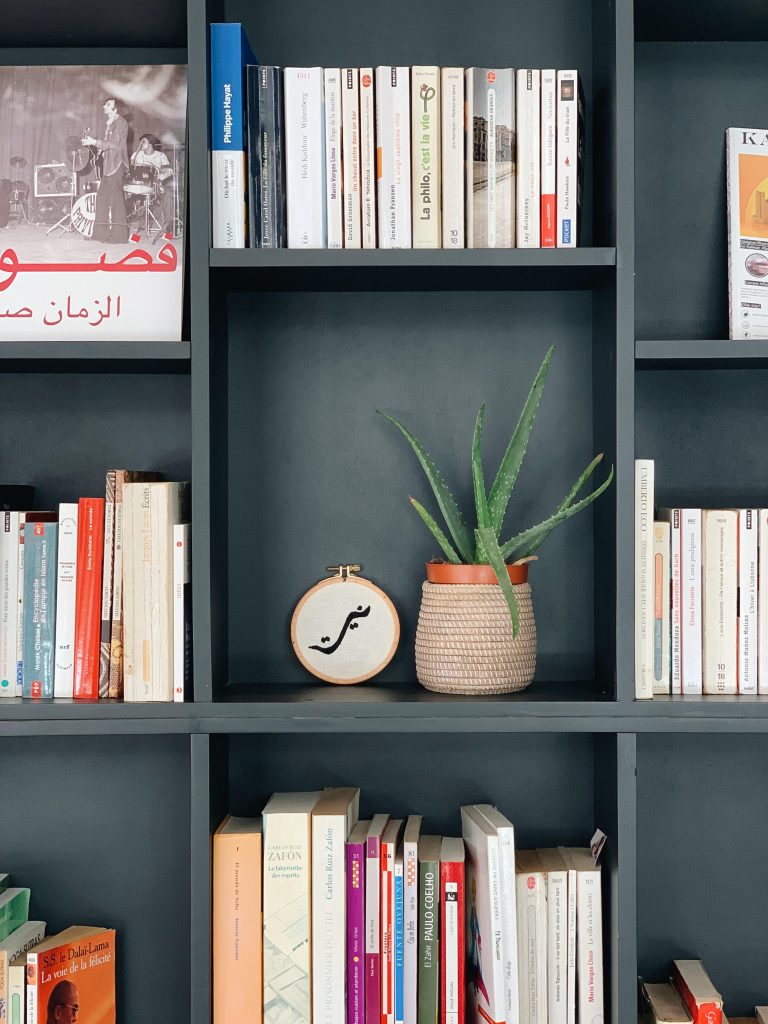
NIYA, Casablanca Morocco.

GAIA team in Africa spoke to Chama Tahiri Ivorra from NIYA in Casablanca, Morocco. Ivorra is the founder of NIYA, an innovative zero waste and cultural café.
Can you tell us about your journey in establishing this business?
I conceptualised NIYA in 2017 after working in the cultural industry in Morocco for about five years. I was frustrated by the lack of support and development in the field. Seeing the model of « tiers lieux » in France, I thought it was an excellent alternative to be able to finance cultural activities through a restaurant business. Niya is a cultural café with exhibitions, book clubs, and workshops. Fast forward five years later, all my projects in the cultural field stopped during the pandemic, and that’s when I met the person who became my business partner. As a vegan myself, I was very familiar with vegan cooking. I had experienced many restaurants abroad, so I was able to train a team and come up with my seasonal menus.
What is your current waste management practice at the restaurant?
NIYA has adopted many zero waste practices; some of our practices include:
- We offer filtered mineralised water for free to avoid plastic or glass waste;
- We do not use straws;
- We use glass containers for sugar, salt and pepper, and sauces and refill them to avoid unnecessary packaging;
- We reuse organic lemonade glass bottles, to bottle our homemade juices;
- We try to make as many homemade preparations as possible to avoid containers. Examples include vegan cheeses and patties, ketchup & sauces, lasagna and ravioli pasta;
- We offer a 10% discount for people who bring their own containers for takeaways. This practice hasn’t really picked up;
- We sort our waste to facilitate the recycling of unavoidable packaging;
- We work with local farms that bring us veggies in boxes they keep and ask other suppliers to avoid plastic and mix everything in boxes. We also use our own containers with our gelato artisan, for instance, to whom we bring our own glass bottled almond milk to fabricate the ice creams.
As a vegan restaurant, we imagine that most of the waste produced is organic. Do you have a sense of what percentage of the total waste stream is organic waste?
I would say it’s probably around 80%, but we don’t have a system yet to compost this waste.
How do sell package the goods that you sell to customers, i.e. takeaway boxes?
We use Kraft packaging for deliveries, take-away bags and bamboo cutlery. We try to avoid over-packaging.
How have you found working with wholesale distributors?
We receive most of our goods in cardboard boxes from distributors.

What are some good lessons you have learned when running your business?
I have learned that it is not so complicated to do things differently and accompany people towards a different lifestyle. We need to uphold our principles, and so far, we haven’t been met with much resistance. We have also attracted a community of people that resonates with our practices.
What are some of the challenges you face in your line of work?
As we work with several small businesses and alternative farms, we are mostly challenged with the regularity of our suppliers, so we have to be flexible. Our customers also understand that we work with fresh goods only and they aren’t too frustrated when something is sold out or not available. We also try to avoid food waste and carefully measure our daily production and the portions we offer so that people are full and satisfied but don’t waste food.
What do you hope for future business owners in this field? What principles should they keep in mind?
Filtered water is a practice that should be mandatory. I understand that there’s a whole industry that we would be threatening, but it would be about time that people move to a different practice and stop selling water. It is totally absurd to me. There are also so many little ways to avoid individual packaged stuff, I wish some restaurants would put more effort into this. Furthermore, it helps to reduce processed foods.
Vegan or not, the most important thing for me is to make food from scratch, not only for health and quality reasons but also because it is automatically correlated with a reduction of packaging and waste.
Chama Tahiri Ivorra.




























